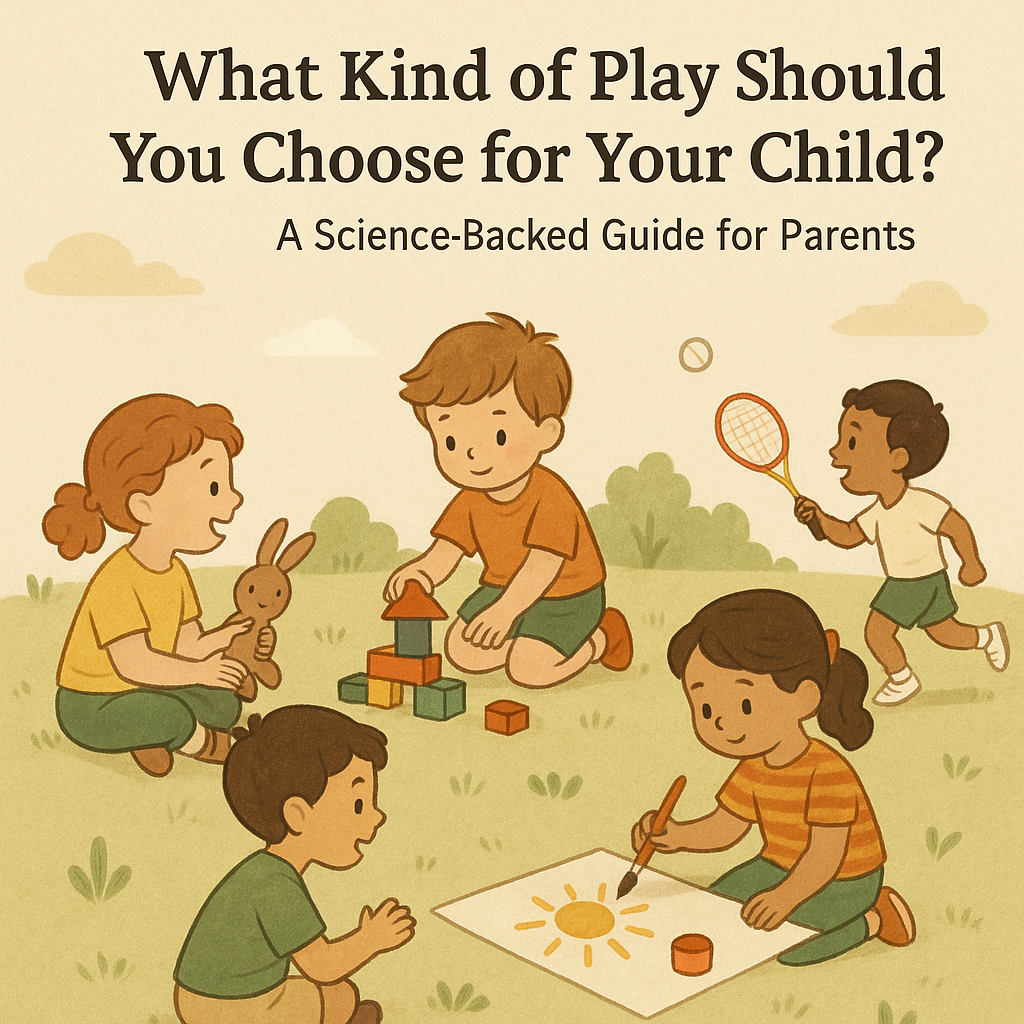
What Kind of Play Should You Choose for Your Child? A Science-Backed Guide for Parents
Share
As a parent, it’s natural to wonder whether you're offering the “right” kind of play. With so many toys and activities on the market, how can you be sure you’re nurturing your child’s development in the best way possible?
Let’s turn to science for clarity.
🎨 1. Different Types of Play Activate Different Areas of the Brain
Research from Ginsburg (2007), published by the American Academy of Pediatrics, highlights that play isn't just about fun—it’s essential for healthy brain development. Specifically:
-
Pretend play fosters creativity, empathy, and problem-solving.
-
Physical play builds motor skills and strengthens the body.
-
Constructive play (like blocks and puzzles) enhances spatial awareness and cognitive planning.
“Play allows children to use their creativity while developing imagination, dexterity, and physical, cognitive, and emotional strength.”
— Ginsburg, K. R. (2007). The Importance of Play in Promoting Healthy Child Development and Maintaining Strong Parent-Child Bonds.
🧩 2. Choose Open-Ended Toys
According to a study by Trawick-Smith et al. (2015), toys that allow multiple outcomes—like building sets or art supplies—encourage longer, more meaningful play. These tools don't limit a child’s imagination but support exploration and flexible thinking.
🗣️ 3. Social Play Builds Emotional Intelligence
Group games or role-playing boost communication skills and emotional regulation. When kids "pretend to be teachers or superheroes," they practice empathy and negotiation.
Social pretend play is associated with greater perspective-taking abilities and self-regulation in young children.
— Lillard, A. S., et al. (2013). The Impact of Pretend Play on Children’s Development: A Review of the Evidence.
🔍 So, What Should You Do as a Parent?
-
Mix structured and unstructured play.
-
Offer toys like blocks, costumes, balls, and musical instruments.
-
Don’t underestimate the power of boredom—it can spark the most creative ideas.
Above all, play with them. Your involvement is more meaningful than any toy.
